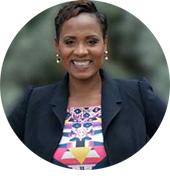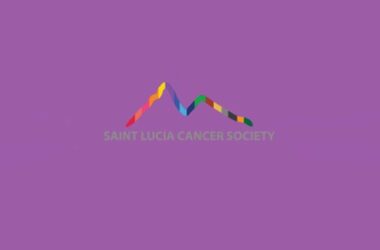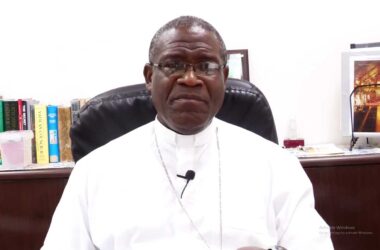“Awareness is the greatest agent for change” Eckhart Tolle

I’M sure at some point, especially within recent times, you would have heard or read about the term self-awareness and how important being self-aware is.
But what exactly is self-awareness? According to the dictionary,” it is the conscious knowledge of one’s own character and feelings”. Loosely translated, it refers to being cognizant of yourself, your thoughts, beliefs, strengths, opportunities for growth, habits and patterns of behaviour. It is essentially, the knowing of oneself.
While knowing oneself might be considered a default and obvious skill, if we take an honest look at ourselves and observe our society and the world at large, we would soon conclude that this basic, yet critical ability is deficient in many humans.
In my observation, the reason for this deficit, lies in the fact that, especially in our Western societies, people spend a large part of their lives, learning about the external world.
Our attention and focus are heavily directed outside of ourselves, wherein, we are constantly absorbing, consuming and receiving information from our parents, family members, schools, churches, society, media, etc.
This substantial external focus often leaves little to no room for attention to our equally important and arguably, more imperative inner world.
This external focus, coupled with the fact that self-reflection and introspection isn’t a widespread social norm for most, many persons go about life unaware of who they are. The results of which of course, are unfavourable to them personally and to the people around them.
An unaware person lacks the necessary insider’s understanding of why they think, choose or act the way they do. Essentially, they are blind to their inner workings, which are the true determinants of how they express themselves and show up in the world.
Imagine for a moment, not having the knowledge and accompanying skills needed to fly an airplane but being given the task of piloting the plane, nonetheless. Yes, as imagined, the potential catastrophe that can ensue as a result. The same is true for knowing oneself.
Unfortunately, many of us are currently existing from a space of unawareness, where our actions are based on unconscious habits, impulses and compulsions, mostly originating from our childhood.
As children, we spent most of our lives mimicking and imitating the behaviour patterns of the adults and dominant models in our lives. During our formative years, we adopted most of their beliefs, viewpoints, notions about life and patterns of behaviours, which still form the basis of our consciousness today as adults.
This phenomenon also explains why, members of the same family and persons within the same community or culture appear to think and act the same; they are all, to a large extent, automatically operating, with little awareness involved.
According to a popular quote by Aristotle, knowing yourself is the beginning of all wisdom.
Becoming self-aware is the greatest and most treasured gift we can give to ourselves and to others. It moves us from a state of mechanical thinking and acting, to a conscious and deliberate way of being.
Only when we are self-aware, we are truly able to make a clear choice based on a deepened understanding of ourselves. Outside of this, we are simply reacting based on our conditioning.
Strengthening your self-awareness muscles moves you from the passenger’s seat of your life, into the driver’s seat, where you are directing the course of your life.
When you are aware of your beliefs, thoughts, perspectives, strengths, opportunities for growth, emotions and the reasons for your choices, you are better able to determine how you experience life.
It provides you with the insight needed, to take an honest, non-judgmental look at yourself, to determine what is working and what isn’t working for you. It then enables you to make the necessary changes to the beliefs, thoughts and actions that may be limiting you, while empowering you to institute more serving and expansive ones.
I firmly believe that self-awareness is the new must have skill everyone should have. It is without a doubt a game changer and ultimately, the key to your continuous growth and overall success.
For these reasons, here are 5 practical exercises you can use to strengthen your self-awareness muscles, in support of being the very best you.
Spend quality time with yourself, reflecting and introspecting- In a very demanding and busy world, alone time seems to be a rare commodity. Many of us are constantly on the go hustling from one activity to the next, with little to no room for quality time, to go within, reflect and introspect.
Taking time for yourself daily, to give attention to your inner world and to care for self, should be considered non-negotiable. It is during this quality time that you get to tune into yourself, become more observant of what is happening with you and tend to any areas requiring change and strengthening.
Develop a meditation practice- Meditation is useful technology which helps you to quiet the noisy mind. For most humans, our minds are constantly on the go, fluctuating constantly between past and future and cycling through over 70,000-80,000 thoughts per day.
The noise of the mind can become extremely overwhelming and inundating, often drowning out our ability to be present to who we are being.
A daily mediation practice, however, overtime, helps us to be less engrossed by our thoughts, which enables us to become more aware of our selves.
Tune into your emotional body- Up until quite recently, in Western societies, the human emotions were not fully understood, which led to its improper management and use.
Our emotions are considered an integral part of our internal navigation system, helping us to determine whether our thoughts and perspectives are helping us or hindering us.
An emotion is the chemical equivalent of a thought. Whenever we think a thought, the effect of that thought is felt as an emotion. Therefore, if we think pleasant thoughts, we experience pleasant emotions and if we think unpleasant thoughts, we experience unpleasant emotions.
If we take time throughout our day to be present to how we are feeling, over time, we will learn the language of our emotions, which empowers us to better navigate and manage our beliefs and thoughts.
Spend time journaling your thoughts- Journaling is a simple, yet powerful exercise you can use to help you become more aware of yourself.
Through the use of daily scribing, you are essentially placing your thoughts on paper, which gives you a different view of its contents.
This form of self-reflection can help you to see things with greater clarity, helping you to become more conscious and aware of your thoughts and beliefs.
Ask others to point out blind spots- The reality is, none of us are walking around with body length mirrors, to constantly assess and monitor our behaviour and our way of being. As such, everyone is subject to blind spots or areas of ourselves we are yet to become aware of.
This is why the people who frequently interact with us are in opportune positions to observe the areas of ourselves that we are unable to see.
Being open to and soliciting healthy feedback from those we trust, and respect, becomes useful and beneficial in helping us to be even more aware of ourselves.
“Self-awareness is the capacity to stand apart from ourselves and examine our thinking, our motives, our history, our scripts, our actions and our habits and tendencies.” – Stephen Covey
Self-awareness is the key to self-mastery, which also happens to be one of the keys to mastering life. The more we work on developing our self-awareness muscles, the more in control we are of our inner world, which moves us from simply living by default, to being fully present and living a life by our design.


![Simón Bolívar - Liberator of the Americas [Photo credit: Venezuelan Embassy]](https://thevoiceslu.com/wp-content/uploads/2025/12/Simon-Bolivar-feat-2-380x250.jpg)






